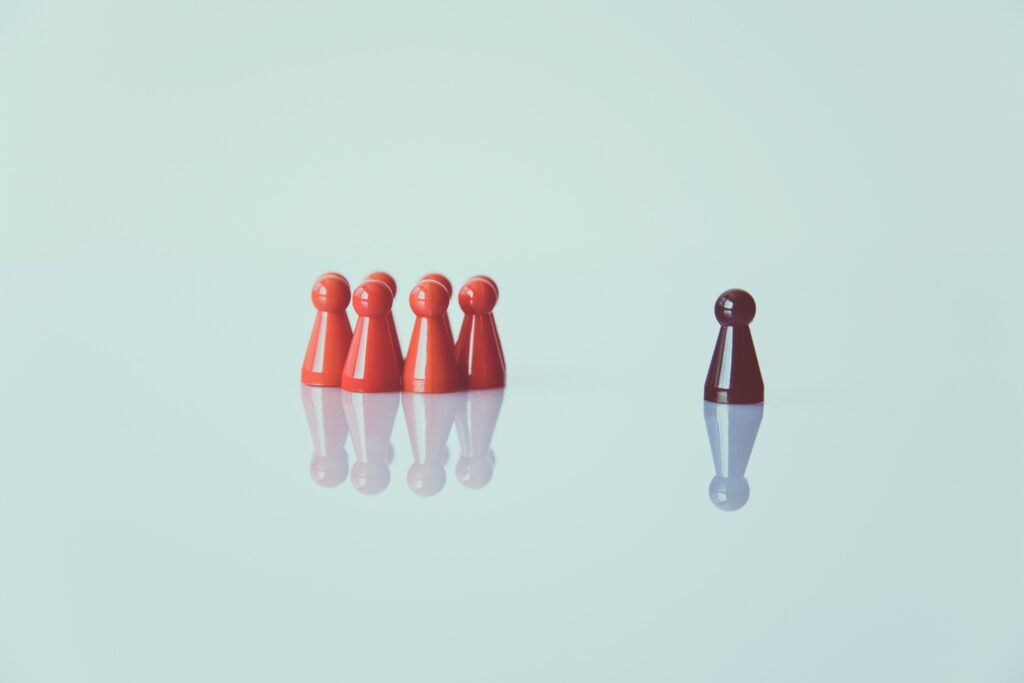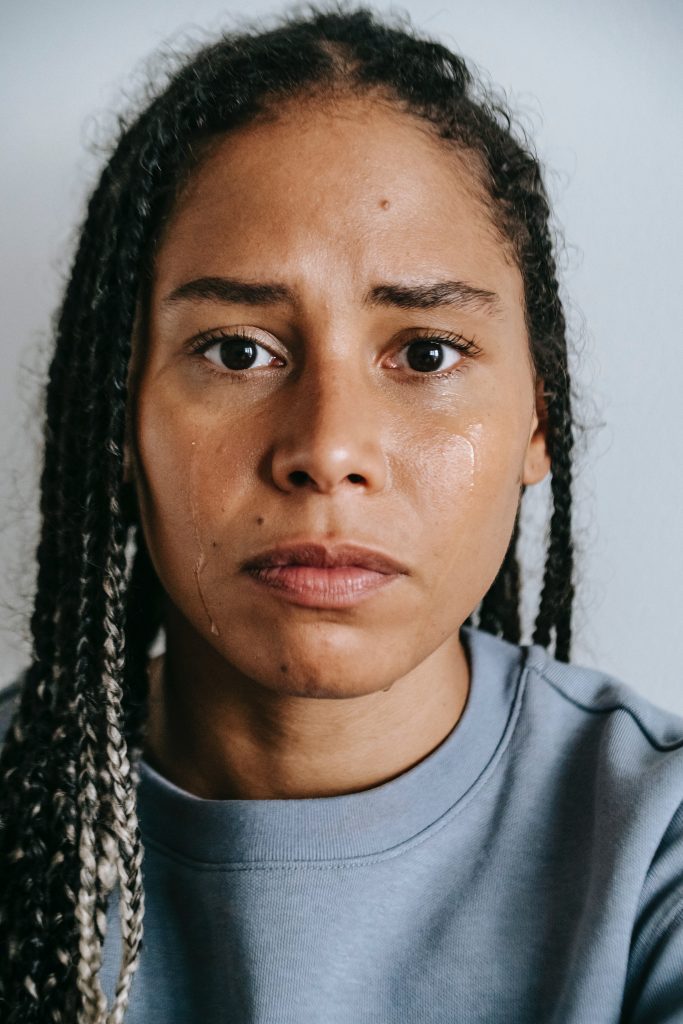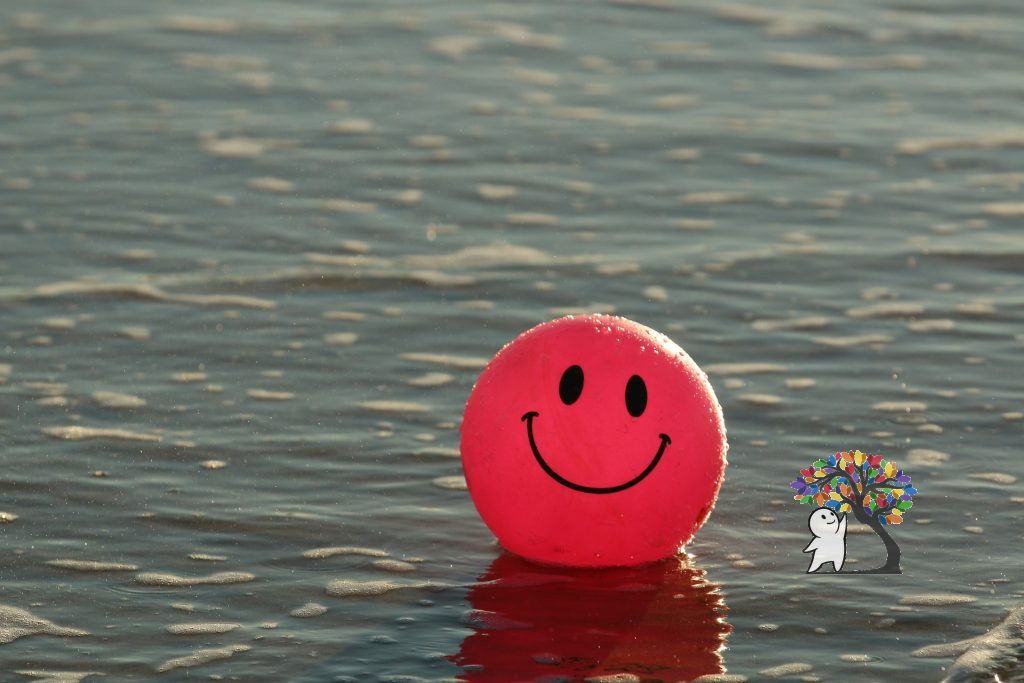The Worst Threat to Mental Health that You’ve Never Heard of

Car metaphors are a pretty popular way to explain certain things, so let’s start there, eh?
Let’s say an electrical issue in your car is causing an avalanche of problems. The power brakes are slow to respond (anxiety). The starter just doesn’t start at all sometimes (depression). The mechanics haven’t found the source causing these problems, but each individual issue is fixed repeatedly. In this analogy, the fictional electrical issue is ADHD. Just the bad parts. As far as I know there isn’t a way to make your car more creative.
Oh! A very important detail I left out- you may not have noticed that your temperature warning light is dead. This car doesn’t have a temp gauge, just that light, and the light only turns on when the engine is overheating. So as you drive in the summer heat, you crank up the AC, and the more you drive, the hotter the car gets. The AC is definitely running, the heat outside is fairly normal, you’ve already checked the air filter, and you can’t figure out why the car keeps getting hotter. Meanwhile, the spark plugs are starting to melt. (That part actually happened on the return trip from a hurricane evacuation. I took it to the dealership with a check engine light and was told to driving it was a fire hazard).
The point of all this: ADHD, left untreated, causes a barrage of life problems, and those problems can keep coming back. Anxiety and depression are two. Crippling self confidence issues, certainly. And for 99% of ADHDers, as well as many with borderline personality disorder and many on the autism spectrum, there is also Rejection Sensitive Dysphoria, or RSD. It is a very new concept with little in the way of data, and in my case it has made the single greatest measurable impact on my life out of all of these issues. On multiple occasions over the past two decades it has caused or fueled breakdowns with the potential for self-harm or self-endangerment.
As with the car analogy, the problem compounds itself. Rejection Sensitive Dysphoria is a severe aversion to rejection, a fear so great that the afflicted will likely base significant life choices around avoiding it- both real and perceived rejection in equal measure. When facing rejection they will compulsively or obsessively try to resolve the problem, usually making things worse. This becomes so overwhelming for the recipient that the rejection becomes real or reinforced. Coupled with the emotional severity caused by ADHD along with other comorbidities, this can even lead RSD to generate a risk of suicide by way of a snowball effect. All of this is caused by something that was only recently given a name, and isn’t even its own disorder or comorbidity like anxiety and depression are.
An important feature of RSD, like many emotional difficulties, is that negative reactions are either faced inwards, towards the self, or outwards to others. This means it can manifest in self-harm in one direction and interpersonal violence in another. In my case everything has been intensely inward-facing, which is why the struggle against self-harm and suicidal ideation could be so great. If those sensations are pointed outwards, they can manifest as aggression, forms of abuse, or the potential for violence.
If anything, from my experience, the most defining trait of RSD is how overpowering it is. It can be incredibly severe, and is worsened by overuse of social media, smartphones, and the addictive reward cycles those can cause. People who experience it often struggle to describe how it feels, as if no description is hyperbolic enough to describe it. There’s a point somewhere between a fictional traumatic event that isn’t severe enough, and another event that fits but is too outlandish of a comparison to be believable to anyone. It’s a very deep-seeded and extreme fear of rejection that is difficult to control, even for those who know about it. Of course, many don’t, so they can’t see the gap between how they feel and how someone else feels. Certain forms of rejection may not seem possible because their perspective of rejection is so extreme that certain otherwise normal things will appear inhuman. Things that are commonly viewed as unpleasant facts of life and are necessary to move on. Since it was totally unknown until recently, even the few of us that are lucky enough to recognize it went through life prior to this making decisions with a flawed perspective on how others perceive relationships, and a risk of severe overreaction at the threat of perceived abandonment. It can be very difficult to avoid any kind of snowball effect because the behaviors RSD causes can drive away anyone who witnesses them. They can make you possessive, manipulative, neurotic, and so on, not to mention an outsized comorbid effect on social anxiety.
In the worst moments of perceived rejection, thoughts of self-harm were so extreme that it was difficult to recognize that it wasn’t the other person’s intent. To anyone with a healthy mind this thought likely would never occur, but because there was a lack of understanding of how I perceived rejection in comparison to the rest of the world, the act itself was unbelievable. MY line of thinking repeatedly went to “What are they doing? Do they just want me to disappear?” And bounced around those and increasingly worse and more delusional interpretations. It’s an escalation so extreme that it’s best explained by trauma. In the case of RSD, it’s believed to be caused by a pattern of rejection in childhood over the course of several years, something neurodivergent children face almost uniformly. Adequate understanding, treatment and handling of ADHD and Autism is still in progress, and we struggle with pharmaceutical side effects and intense social stigma, even conspiracy theories and misinformation. In my case, I was kept off medication until middle school, when my ADHD became a serious problem. In 2000, stimulants didn’t appear to work because they made my anxiety worse (and still do). Prior to adulthood there was very little in the way of known coping skills, and what little was known was exclusively focused on productivity. Even today, the DSM-5 essentially describes an inattentive child in its diagnostic criteria for ADHD, which is barely a sliver of the real-world impact of the disorder. As a result, misdiagnosis is extremely common.
Emotion is the half of ADHD that actually mattered throughout my life and simply was not treated beyond anxiety, depression, aside from the crossover benefits coming from certain medications and in particular, CBT and DBT. My life and those around me have been plagued by emotional severity and unrecognized rejection sensitivity going as far back as age 13. I was totally unaware of the emotional effects of ADHD until a quarter-century after my diagnosis. I’m thirty-four, and it took the implosion of multiple friendships and a committed long-term relationship, close calls with self-endangerment, intensive outpatient therapy, and exploring different treatment options over the course of nine months for me to find this out. Greater public knowledge of ADHD and RSD would have spared people in my life (and countless other lives) a lot of strain, heartbreak, and in at least one case, therapy. This is the point at which you have to look at everyone that came before you who never found out what was “wrong” with them, and say “at least I got some answers”.
In 2003 or 2004 I was considered a candidate for asperger’s syndrome, which I believe now was due to my social withdrawal and ADHD symptoms. Although understandable, this of course was inaccurate, and asperger’s syndrome itself isn’t even used in psychiatry anymore. It was replaced by the more general autism spectrum disorder. All of these are reminders of just how significantly the progress of psychological health may be hindered by how young the field is. It’s important to remember how many of these oversights are not the fault of any medical professional, but in fact that we are only aware of them because of the commitment of those in the field.
Along with its severity, its newness and lack of data is the most detrimental characteristic of RSD in my opinion. Specifically, I decided to return to this topic and focus on it not necessarily because of my own experiences, but because of a pattern I discovered and wanted to research. The impetus for this article was recognizing the traits of RSD in true crime stories from recent years. This, as well as abuse, seemed at the time to be two possibilities of the external form of RSD. As referenced earlier, the internal form can build into the risk for self-harm or suicide, and at times prior to effective treatment I’ve dealt with intrusive thoughts about self-harm. As you can imagine, someone projecting that same mentality at someone else instead of inward towards themselves opens up the possibility for disaster.
Because of how new RSD is to us, there is no simple answer for what to do to manage it for the time being. More studies are needed, which will hopefully occur over the coming years even if it’s as a secondary result of studies on other disorders. For now all we can do is make it better known so that those experiencing it understand it, and perhaps mental health professionals can better differentiate it from various forms of anxiety- and as we’ve seen with ADHD and the autism spectrum over the years, that’s no easy feat.
Do you or someone you know suffer from symptoms of RSD? If so, tell us your story in the comments.
Sources:
Watson, S. (n.d.). Rejection sensitive dysphoria — causes and treatment. Retrieved October 08, 2021, from https://www.webmd.com/add-adhd/rejection-sensitive-dysphoria
Raypole, C. (2019, December 06). More than ‘thin-skinned’: Rejection sensitive dysphoria. Retrieved October 08, 2021, from https://www.goodtherapy.org/blog/more-than-thin-skinned-rejection-sensitive-dysphoria-1130197
What is rejection-sensitive dysphoria and how to overcome it? (2021, August 26). Retrieved October 08, 2021, from https://mangoclinic.com/what-is-rejection-sensitive-dysphoria-and-how-to-overcome-it/#:~:text=Long-term%20experiences%20with%20rejection-sensitive%20dysphoria%20can%20have%20untold,apparent%20psychological%20impacts%20of%20rejection%20sensitive%20dysphoria%20include%3A
K;, F. (n.d.). The link between rejection sensitivity and borderline personality disorder: A systematic review and meta-analysis. Retrieved October 08, 2021, from https://pubmed.ncbi.nlm.nih.gov/30900278/
What is rejection sensitive dysphoria? (n.d.). Retrieved October 08, 2021, from https://www.psychologytoday.com/us/blog/friendship-20/201907/what-is-rejection-sensitive-dysphoria
Liz. (2018, October 11). Rejection sensitive dysphoria sucks – healthyadhd: Info, coaching, & Community for Women. Retrieved October 08, 2021, from https://healthyadhd.com/rejection-sensitive-dysphoria-sucks/
Complex, comorbid, contraindicated, and confusing patients. (n.d.). Retrieved October 8, 2021, from https://chadd.org/wp-content/uploads/2018/10/1G_Complex_Comorbid_Contraindicated….pdf
Gillette, H. (2021, September 15). Sensitive to rejection? it could be RSD. Retrieved October 08, 2021, from https://psychcentral.com/adhd/what-is-rejection-sensitive-dysphoria
What is rejection sensitivity dysphoria…and do you have it? (n.d.). Retrieved October 08, 2021, from https://www.amenclinics.com/blog/what-is-rejection-sensitivity-dysphoriaand-do-you-have-it/






Hey Chris, thank you for writting this down. It’s very detailed description and was unexplainably helpful to me. Its been around 2 weeks since I’ve heard and read of RSD and just that knowledge about it already helped. Before I experienced rejection in every possible way, could be a text – or not text – a gesture, someone showin up or not, nearly everything one can imagine. Everything could be OK and some hours later I’d be in huge pain. It created a pain that made me think of ending things cause the suffering was too overwhelming. But I love my life, still, I won’t get there and I hope no one does! But I’ve always been unable to protect my borders and rather protect the borders of others (of which I dont even know) then mine. I was rejected as a child by my bullying brother threwout kindergarden to highschool, he went to the same schools and we saw each other 24/7, he convinced my friends to bully me too. I went threw some traumatic experiences later, many abuses by strangers and exbf. I had the luck to have lot of people fall in love an like me dearly, had many relationships and friendships, but none last. I was diagnosed with bipolar and post traumatic disorder 5 years ago and since then I was in psychological treatment but recently stopped. I was prescribed medication, but I didnt want to take away the blissfull times. I focused on work so hard, got two master degrees, worked in twelfe jobs, had high positions with lots of responsibility. In all those stressfull times I was so dependent on people confirming me, loving me, because I could never do this on my own. Only recently after a toxic relationship involved with lots of guilt, I finally wanted to take care. I was often loud, angry and violent and every bf could make me want to end things by showing me how bad Iam to them. I ended the last RL a month ago. Now I feel more at peace, I blocked many people, I dont deal with anyone who is insensitive and I try to work on not “caring” too much or considering others more then me. I don’t want to show how hurt I am, I don’t want to give others power, even if it means sth good. Taking care I realised that I feel no longer dependent – also on the confirmation. I try to not selfreject. I feel if I manage this no one can, cause it won’t resonate. I recently had a fight with my worst critic, but still love him, my dad. He would tell me Iam far from perfect, got so many flaws, he wonders why guys would like me and when I show selflove (selfcompassion-care) he would highly critisize that. And those words don’t resonate anymore. It’s his problem and perspective, not mine. I want to like myself, also I want to like him, but liking myself is the main priority. I wish everyone experiencing RSD soothing and peace. You are everything.
Thanks Mary, it’s so awesome that you’ve been able to fortify yourself against further mistreatments like that. Causes vary, but in cases like ADHD, there can be such a low self-opinion taught to the person carrying the disorder that they have a lot of difficulty standing up for themselves. I certainly did- and at other times I could be overprotective of myself. There’s so much worthwhile in finding out exactly what conditions our brains may have and better understanding how they operate- especially how they operate in unique ways.
Thank you, very interesting
A year later I’m just learning what RSD is and that it’s even a thing after being called crazy, And everything under the Sun even asking my therapist who completely disregarded RSD when I asked if he’d heard of it. I wasn’t diagnosed with ADHD despite having a twin brother and little sister who both have it because academically I did well but was a chatter box in class- I had some childhood trauma so I was also quiet- I flew under the radar for so long and I’m sitting here crying reading this because I finally know what’s wrong with me and that I’m not crazy…. Thank you so much from a mom who really needed to see this. 🙏🏼🙏🏼🙏🏼🙏🏼